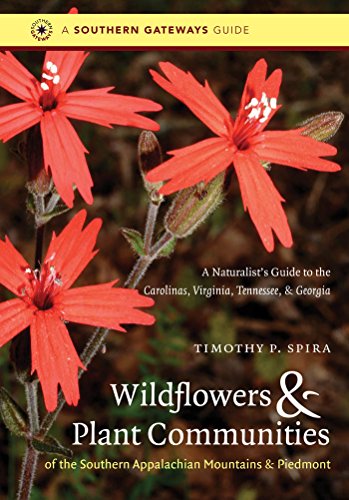Wildflowers & Plant Communities
of the Southern Appalachian Mountains and Piedmont
Timothy P. Spira
This richly illustrated field guide serves as an introduction to the wildflowers and plant communities of the southern Appalachians and the rolling hills of the adjoining piedmont. Rather than organizing plants, including trees, shrubs, and herbaceous plants, by flower color or family characteristics, as is done in most guidebooks, botanist Tim Spira takes a holistic, ecological approach that enables the reader to identify and learn about plants in their natural communities.
This approach, says Spira, better reflects the natural world, as plants, like other organisms, don't live in isolation; they coexist and interact in myriad ways.
Full-color photo keys allow the reader to rapidly preview plants found within each of the 21 major plant communities described.
Each community description begins with a photograph which captures the essence of this particular community. The words that follow are an unexpectedly pleasant read, explaining what distinguishes this community from others, seasonal patterns of the flora and fauna that live here, and community dynamics.
The section concludes with suggestions for further reading, a list of characteristic plants, and page numbers of those plants' descriptions in this volume.
The illustrated species description for each of the 340 featured plants includes fascinating information about the ecology and natural history of each plant in its larger environment.
The volume also includes a glossary, illustrations of plant structures, and descriptions of sites to visit.
With this format, readers can see how the mountain and piedmont landscapes form a mosaic of plant communities that harbor particular groups of plants. Whether you're a beginning naturalist or an expert botanist, this guidebook is a useful companion on field excursions and wildflower walks, as well as a valuable reference.
University of North Carolina Press.
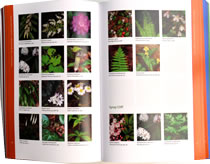
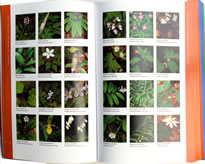
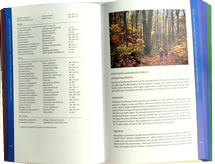
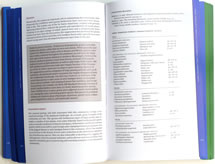
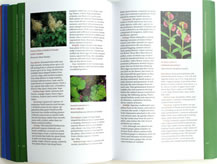
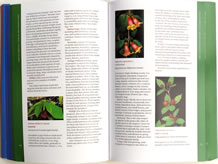
To select from a dropdown list of genera, type only the first 2-3 letters.
If "briar" doesn't deliver the results you want, try an alternate spelling such as "brier", etc.

